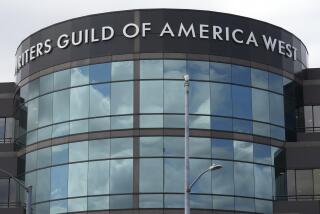The Cost of Truth
- Share via
Move over Dorothy Parker, Oscar Levant and Yogi Berra. The great line from the 20th century may be the greeting given Miramax co-chief Harvey Weinstein at “The Faculty” premiere: “Hi, David Wechter, first draft” (“A Creative Spin on Hardball PR Game,” by Patrick Goldstein, Jan. 1). More than funny, it may presage how film contracts and ads may be written in century 21.
Now that Wechter and partner Bruce Kimmel have established a $100,000 price for removing their names from screenplay credit (instead of gambling on Writers Guild arbitration), their agent can now demand a higher fee for erasure on their next film. And, if Miramax plays fast and loose with truth in their ads, why shouldn’t they simply pay a fee to this year’s hot screenwriter to assign his name to a picture being marketed, even if he hasn’t contributed a word?
Mr. Wechter, you said a mouthful.
DONALD ROSS
Beverly Hills
For many, the single most important issue leading to the creation of the Writers Guild some 60 years ago was the need to take determination of screen credits away from the producers who bestowed credits as it best served them, with little concern for the truth of who wrote what. Credits were handed out like political appointments or withheld because of some perceived slight. While the arbitration system as it exists today isn’t perfect, it does work to protect the original writers of a project, people without whose work there wouldn’t be a movie to make.
It’s reckless for a writer to waive the hard-won rights the guild and its members have achieved, and it’s insulting for producers and studios to think a writer’s pride can be counterbalanced by money. Ultimately both attitudes are bad for American movies.
JOSEPH DOUGHERTY
Hollywood


